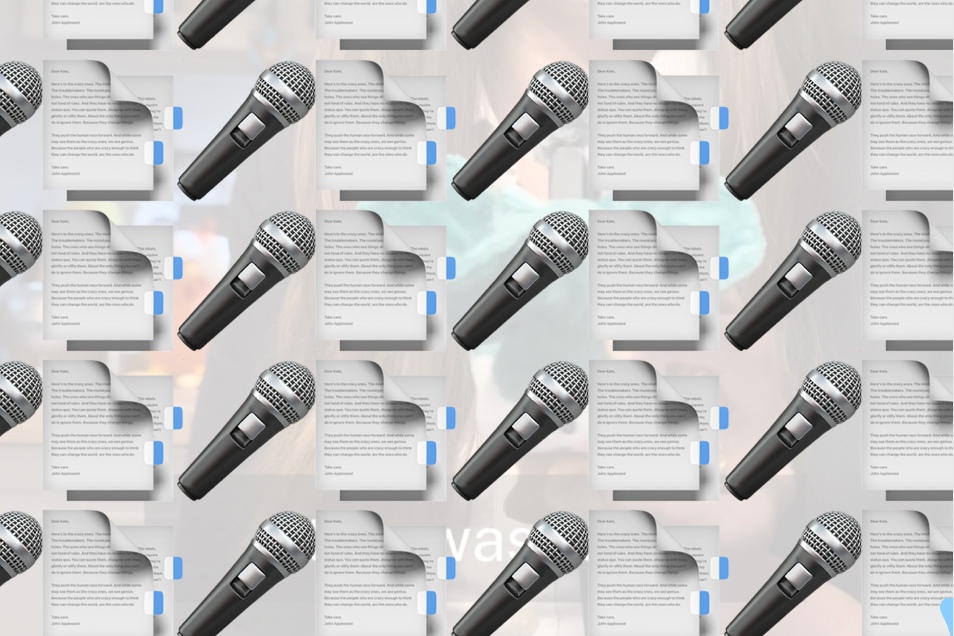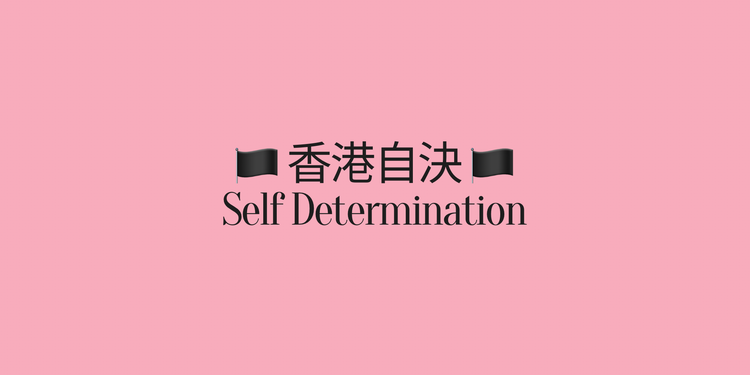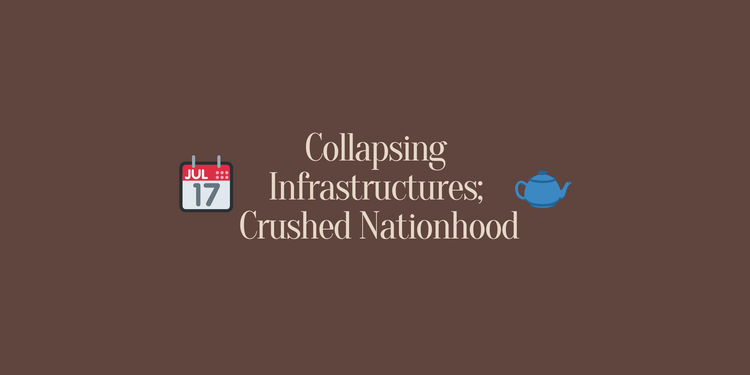📹 Public Inquiry into Foreign Interference

The Public Inquiry into Foreign Interference (PIFI) offered facts and analysis relevant to the Commission’s mandate:
- allegations of foreign interference in the 2019 & 2021 elections;
- GOC, agencies & broader societal response to FI;
- Public consultation -including diasporic communities; and
- Offering next steps, 51 recommendations for consideration
Nothing new to me, almost blends in with the dozen other official reports. But this is the most detailed investigation yet. PIFI’s report confirmed some of my past speculations while reaffirmed some of ACHK’s past report findings - let’s get into it:
Whether you are glad or disappointed to hear there are no “traitors” - the report showed us the threat of foreign states’ interefering in Canadian electoral and democratic processes.
It should concern all of us to see “Legitimate concerns about parliamentarians potentially having problematic relationships with foreign officials, exercising poor judgement, behaving naively and perhaps displaying questionable ethics”
- A lot of words to say that some parliamentarians are implicated in foreign interference activities…
- Foreign principals are targeting any person that has influence in Canadian society - they don’t care about partisan association or who wins - the bottom line is: to advance the foreign principal’s objectives
- Once their targets of influence are exposed - whether by media reporting or court proceedings - foreign principals would already have new influence targets lined up.
There is an integral difference between those who knowingly and willingly benefit from their collaboration with foreign principals, those who fall for the charms of elite capture and propaganda, and those who are pawns for foreign principals sinister schemes.
- Foreign Influence Transparency scheme should help us clear up whether these people are useful idiots or if they were swayed to side with these foreign entities.
Foreign interference is and will be an evolving threat. There is no end to work against it. Only, now we know and understand better.
Reassuring that the result of the election on a national-level is not influenced by foreign interference. This makes sense. Voting is a secret process - it will be near impossible to determine whether some voters felt discouraged or were influenced to vote differently as a result of FI.
- However, on a riding level, disinformation campaign towards specific candidates would definitely impact the community’s views towards the candidates. It is likely that these disinformation campaigns impacted how voters voted - but again, impossible to quantify if or how many people voted differently based on false narratives.
- Disinformation and social media are one of those grey areas where we can’t make a swooping assumption - one way or the other.
- One thing is for sureL FI negatively impacted Canadians’ trust in the democratic systems - and this will take a lot of work to repair.
- The report acknowledged the GOC ongoing and existing work countering FI: including new legislation creating a foreign influence transparency scheme that passed last May
- Some of the issues raised in the report are or will be mitigated
- Of course, still plenty of work to do…
In the consultation with political parties, none of them wanted to be regulated by Elections Canada over nomination or leadership race.
In many ways unshocking - political parties are often gaining new members and donations during nomination & leadership races, they want less paperwork. But that isn’t good for democracy:
- Nomination races produce candidates; candidates become MPs
- Leadership races produce party-leader; who has the potential to become PM
IMPORTANT that we consider setting regulatory standards:
Echoing Canada’s Chief Electoral Officer’s recommendations: It is smart to ask for financial filings & have ground rules across all political parties in Canada
Back in 2021 , ACHK warned “lines between foreign influence and foreign interference are being increasingly blurred”.
The increasingly sophisticated operations from foreign principals had interwoven diplomatic activities with foreign interference. Some activities are LEGAL and a normal part of diplomacy- lobbying, media interviews, community events, academic research
- As dissidents, we may dislike and disagree what they do and what they say - but they have the right do do so.
- Foreign interference are coercive, deceptive, threatening, or detrimental to Canadian interest
- EX: Using Canadian-tax dollar funded research to advance foreign military interest;
- EX: Allowing diplomatic staff to participate in harassment, intimidation, and violence against Canadians
There are also activities that are hard to detect: The Commission acknowledged astroturfing - though not using the same terminology:
- Astroturfing is a public-relation tactic, to deceit outsiders by presenting themselves as “community representatives”
- Even if diaspora community members disagree, we know we can’t challenges these astroturfing entities without drawing attention to ourselves - hence, endangering ourselves
- Foreign states and proxies utilize community organizations, cultural spaces, academic institutions and other civil society spaces - another example of the blurred lines between influence and interference
Disinformation was featured as a main challenge facing the integrity Canada’s democratic institution and electoral processes
- We don’t need to look too far when our own politicians promote disinformation
- Foreign principals simply amplify and take advantage of the existing narratives
- This is so easy to do. Just one post can be reposted, repurposed, translated and shared across platforms hundreds and thousands of times.
Transparency is another big theme identified by PIFI report. The opacity of foreign interference cases becomes fertile grounds for guesswork - Long gone are the days where Canadians are willing to uncritically believe in suits who say “trust me, I know more than you.”
This is something that the nat sec community has long struggled with. The commission offered some recommendations to improve information sharing as a way to strengthen against disinformation.
- Canada started with the foreign influence transparency scheme, but that is just the tip of the iceberg.
Transparency is a powerful tool against disinformation and foreign interference.
We need meaningful public engagement on these sensitive topics. Only through transparency will Canadian society emerge more resilient to foreign principals’ covert, coercive, and clandestine interference activities. Canadians deserve the right to make informed and consensual decisions.
I feel I must challenge the notion that national security apparatus are the solution for Foreign Interference:
- Genuinely laughed when I saw this thing about RCMP engaging with local residents
- We don’t need shit translated pamphlets and uniformed ARMED cops to tell us about foreign interference - trust me, diaspora communities know more about it than these cops do
Foreign interference in Canadians elections is not a foreign policy issue: Foreign principals take advantage of existing gaps and vulnerabilities - their goals is to create an environment that is beneficial towards their objectives and interests
This is a problem for us Canadians to resolve: How do we safeguard democratic norms and electoral processes from malicious actors?
- It starts with digital and media literacy - improving Canadian’s resilience against disinformation - especially the age of AI-generated content
- The report called on Canadians to detect, deter, and report foreign interference - in some ways I agree, but I also fear that the topic has already been tainted by the racist and xenophobic narratives
- On that note, Stop presenting diasporic Canadians as helpless victims. Diaspora communities have front-row seats to foreign interference - we had long navigated it without support.
- We know foreign interference happens in all corners of Canadian society. It is white and non diasporic Canadians who are having trouble identifying FI actors
The Commission had strike a balance between public disclosure and national security concerns.
- PIFI completed a difficult task in helping Canadians understand what happened during the two federal elections, determine facts while providing informed analysis to speculations, and offered Canadians a way forward.
📝 Reference List 📝
Alliance Canada Hong Kong (2021). "In Plain Sight: Beijing’s Unrestricted Network of Foreign Influence". https://alliancecanadahk.com/achk-releases-new-report-on-foreign-influence-activities-in-canada/
Alliance Canada Hong Kong (2023). “Murky” Waters: Beijing’s Influence in Canadian Democratic and Electoral Processes”. https://alliancecanadahk.com/murky-waters/
Craig Offman (2015). “CSIS warned this cabinet minister could be a threat. Ontario disagreed”. https://www.theglobeandmail.com/news/national/csis-warned-this-cabinet-minister-could-be-a-threat-ontario-disagreed/article24974396/
Catherine Tunney (2023). “Cameron Ortis is accused of violating the Security of Information Act — what is that?”. https://www.cbc.ca/news/politics/security-of-inforamtion-act-1.6981517
Government of Canada (2024). “Canada’s Foreign Influence Transparency Registry”. https://www.canada.ca/en/public-safety-canada/news/2024/05/canadas-foreign-influence-transparency-registry.html
Government of Canada (2023). “Canada declares Zhao Wei persona non grata”. https://www.canada.ca/en/global-affairs/news/2023/05/canada-declares-zhao-wei-persona-non-grata.html
Public Inquiry Into Foreign Interference (2025). “Final Report”. https://foreigninterferencecommission.ca/reports/final-report
Robert Fife & Steven Chase (2023). “Canadian universities conducting joint research with Chinese military scientists”. https://www.theglobeandmail.com/politics/article-chinese-military-scientists-canadian-universities/



Comments ()